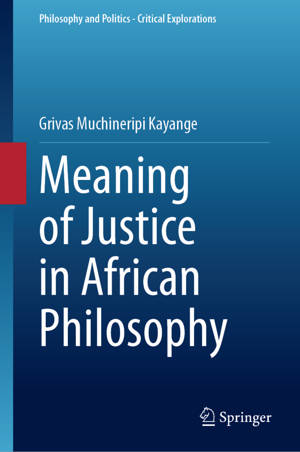
- Afhalen na 1 uur in een winkel met voorraad
- Gratis thuislevering in België vanaf € 30
- Ruim aanbod met 7 miljoen producten
- Afhalen na 1 uur in een winkel met voorraad
- Gratis thuislevering in België vanaf € 30
- Ruim aanbod met 7 miljoen producten
Meaning of Justice in African Philosophy
Grivas Muchineripi KayangeOmschrijving
The book examines the meaning of justice in African political philosophy, building on the use-theoretical approach. Currently, most of the philosophical works in this context advocate for a communal interpretation of the meaning of justice, such as the 'relational theory of justice' and 'Ubuntu justice as fairness.' The author argues that this foundation of justice in the community undermines the self, which is a major problem with these theories. As an attempt to go beyond communitarianism in African thought, the book recognizes other philosophical frameworks for elaborating the meaning of justice in ordinary people's experience, such as vitalism, theism, ubuntuism, and semantic framework. The author opts for a reconstructed ubuntu-based theory of the meaning of justice that reflects the traditional African experience and recuperates 'valuing self-existence' and 'valuing other-existence' as its foundations. The book further identifies the centrality of rights in defining justice intraditional African communities.
Specificaties
Betrokkenen
- Auteur(s):
- Uitgeverij:
Inhoud
- Aantal bladzijden:
- 138
- Taal:
- Engels
- Reeks:
- Reeksnummer:
- nr. 28
Eigenschappen
- Productcode (EAN):
- 9783031475979
- Verschijningsdatum:
- 28/11/2023
- Uitvoering:
- Hardcover
- Formaat:
- Genaaid
- Afmetingen:
- 156 mm x 234 mm
- Gewicht:
- 403 g

Alleen bij Standaard Boekhandel
Beoordelingen
We publiceren alleen reviews die voldoen aan de voorwaarden voor reviews. Bekijk onze voorwaarden voor reviews.











